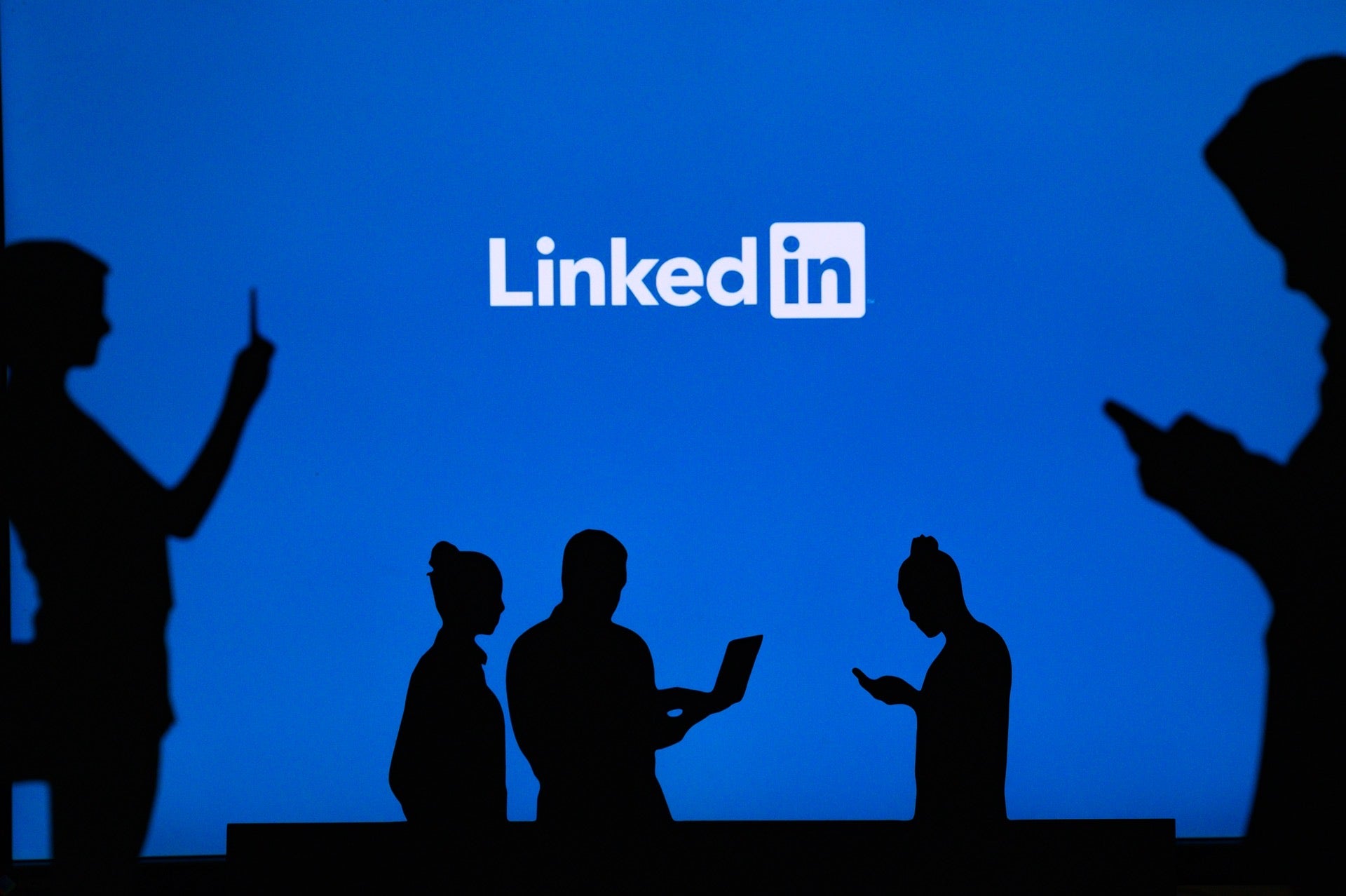
LinkedIn has confirmed that it is trialling its own version of a Clubhouse-like audio service, becoming the latest tech titan to do so. But will it be enough to tackle looming revenue threats?
It seems as if everyone wants to get in on the Clubhouse action. The audio-based social media company grew popular among celebrities, venture capitalists and tech aficionados at the beginning of 2021. In the months since, other businesses have followed suit with their own versions – Twitter has begun to roll out its Spaces feature, Facebook and Spotify are both reportedly working on their own versions, Telegram has added some similar features, and Slack has hinted at some upcoming audio-based features of its own.

Access deeper industry intelligence
Experience unmatched clarity with a single platform that combines unique data, AI, and human expertise.
However, LinkedIn doesn’t seem too troubled to be entering an increasingly saturated market. Instead, it believes it can stand out from the Clubhouse-clone crowd thanks to its professional focus.
“Our members come to LinkedIn to have respectful and constructive conversations with real people and we’re focused on ensuring they have a safe environment to do just that,” Suzi Owens, a LinkedIn spokesperson, said when confirming the development of the audio feature to TechCrunch.
The new feature comes on the back of LinkedIn recently shifting its focus to offer more content-based material. It launched its Snapchat-like Stories feature in 2018 and a live video broadcasting service in 2019. Since then the Microsoft-owned business has also added video profiles and a new Creator mode, enabling users to follow creators for updates.
“We’re seeing nearly 50% growth in conversations on LinkedIn reflected in stories, video shares, and posts on the platform,” said Owens.

US Tariffs are shifting - will you react or anticipate?
Don’t let policy changes catch you off guard. Stay proactive with real-time data and expert analysis.
By GlobalDataThe audio-based feature was first uncovered by reverse engineer Alessandro Paluzzi. His screenshots hint that there may be tools to join and leave the room, react to comments and request to speak.
LinkedIn didn’t reveal any date when the service would be rolled out but said it would begin beta testing soon.
“We’re doing some early tests to create a unique audio experience connected to your professional identity. And, we’re looking at how we can bring audio to other parts of LinkedIn such as events and groups, to give our members even more ways to connect to their community,” Owens said.
While it makes sense on paper for LinkedIn to create its own Clubhouse copycat, the company must still tackle several challenges or risk losing out on profits.
Looking at the latest quarterly results from January, this may sound odd. The results made it clear that the company has enjoyed tremendous growth during the pandemic. In the second quarter of the financial year 2021, LinkedIn’s revenue jumped by 23% year-over-year, with advertisement accounting for over a third of the total revenue. Sessions on the platform increased by 30%, conversations jumped by 48% and time on the platform doubled compared to the same quarter one year prior.
Despite these impressive numbers, GlobalData’s Intelligence Centre highlights several challenges to LinkedIn’s future growth.
While lengthy lockdowns have proven to be a gold mine for LinkedIn, the same is true for its rivals, with 2021 gearing up to be a particularly competitive year for social media platforms. Staying ahead of the competition should therefore be key focus for the platform.
LinkedIn is also facing several lawsuits. Some of the lawsuits concern its misrepresentation of ads metrics on its platform, revealed in November last year, while others have accused it of breaching patent laws.
“Such lawsuits filed against the company would divert the focus of the management and involve considerable expenses,” GlobalData’s analysts said. “In case of an adverse outcome in such cases, LinkedIn would be compelled to pay damages and is subject to equitable remedies that will affect its financial performance and results of operations.”
LinkedIn’s global success could also leave it vulnerable to the risk of breaking any laws in the 200 countries and territories it operates in.
“The company should comply with all such stringent governmental regulations, failure of which may hamper its existing operations,” GlobalData’s analysts noted. “For instance, LinkedIn was blocked by the Chinese government after a user’s comments related to prospective Jasmine Revolution in China. Networking sites are subject to increasing supervision in the Middle East and African countries.”







